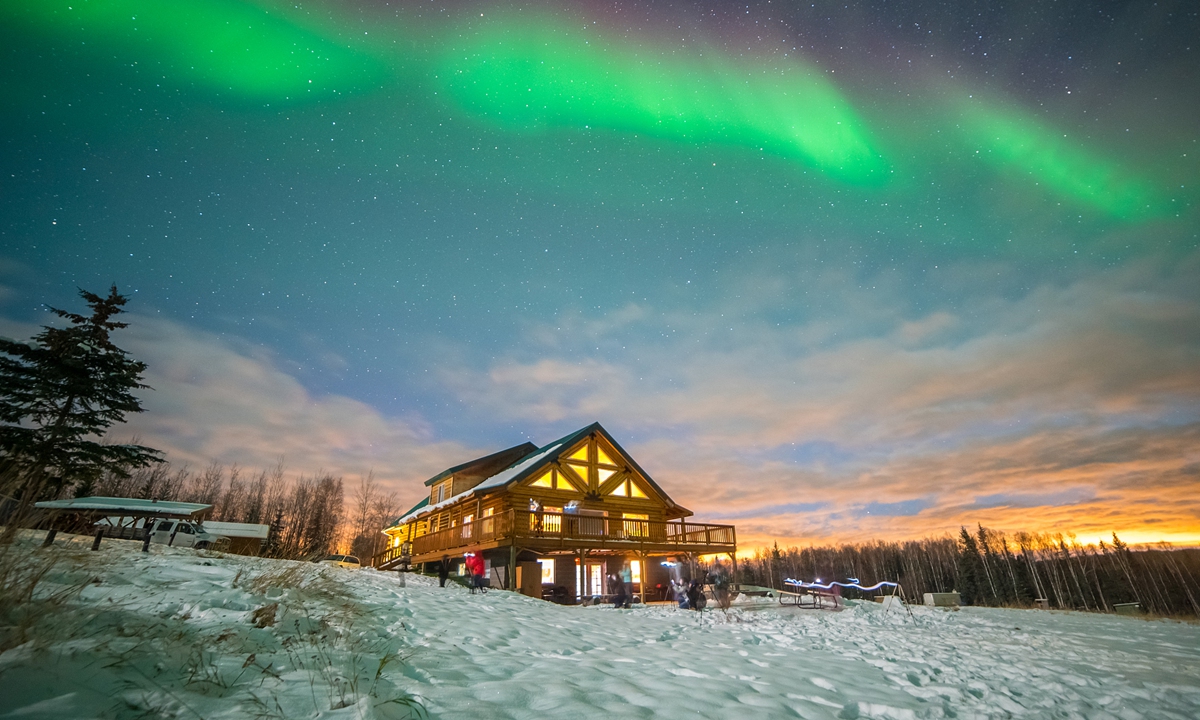Alaska thunderstorms could triple if climate trends continue, scientists warn
Alaska thunderstorms could triple if climate trends continue
Alaska may need to brace for more thunderstorms - along with the landslides, floods and wildfires they can bring - if current climate trends continue, a team of scientists warns.
Two studies suggest the rapidly warming US state could see triple the number of thunderstorms by the end of this century.

The open water proved significant in calculations and computer simulations that considered Alaska's past weather data and projections of future sea-ice cover and temperature conditions, according to the team, led by scientists from the Paris Sciences and Letters University and the National Center for Atmospheric Research.
"In Alaska, it's almost like you're adding an additional ocean next to the state," said coauthor Andreas Prein, a climate scientist at the National Center for Atmospheric Research in Boulder, Colorado. "Once the ice is gone, the ocean is adding a lot of moisture into the atmosphere."
The link between climate change and lightning is still being investigated. Another research team published a study in 2014 in the journal Science suggesting there is roughly 12 percent more lightning for every 1 C of atmospheric warming above preindustrial temperatures.
With increased thunderstorms, the new research projects an increase in extreme rainfall by 37 percent by 2100.
"Future rainfall will be really short bursts of heavy rain, followed by longer intervals of dry," Prein said.
Such heavy rainfalls interspersed with dry periods pose potential dangers, including in areas already vulnerable to permafrost thaw, he said.
Prein said he hopes the worst of the predictions will not come true. "I'm hoping that we can mitigate some of that."
Two studies suggest the rapidly warming US state could see triple the number of thunderstorms by the end of this century.

A view of Alaska Photo: VCG
As air temperatures rise, the atmosphere holds more moisture and can also cause more rapid updrafts - two key factors in lightning. But Alaska is also affected by the rapid retreat of Arctic sea ice, which is exposing more open water nearby, allowing more water vapor to enter the air, the scientists explain in the two related papers published in the journal Climate Dynamics. The first was published in September 2020, and the second on Tuesday.The open water proved significant in calculations and computer simulations that considered Alaska's past weather data and projections of future sea-ice cover and temperature conditions, according to the team, led by scientists from the Paris Sciences and Letters University and the National Center for Atmospheric Research.
"In Alaska, it's almost like you're adding an additional ocean next to the state," said coauthor Andreas Prein, a climate scientist at the National Center for Atmospheric Research in Boulder, Colorado. "Once the ice is gone, the ocean is adding a lot of moisture into the atmosphere."
The link between climate change and lightning is still being investigated. Another research team published a study in 2014 in the journal Science suggesting there is roughly 12 percent more lightning for every 1 C of atmospheric warming above preindustrial temperatures.
With increased thunderstorms, the new research projects an increase in extreme rainfall by 37 percent by 2100.
"Future rainfall will be really short bursts of heavy rain, followed by longer intervals of dry," Prein said.
Such heavy rainfalls interspersed with dry periods pose potential dangers, including in areas already vulnerable to permafrost thaw, he said.
Prein said he hopes the worst of the predictions will not come true. "I'm hoping that we can mitigate some of that."
